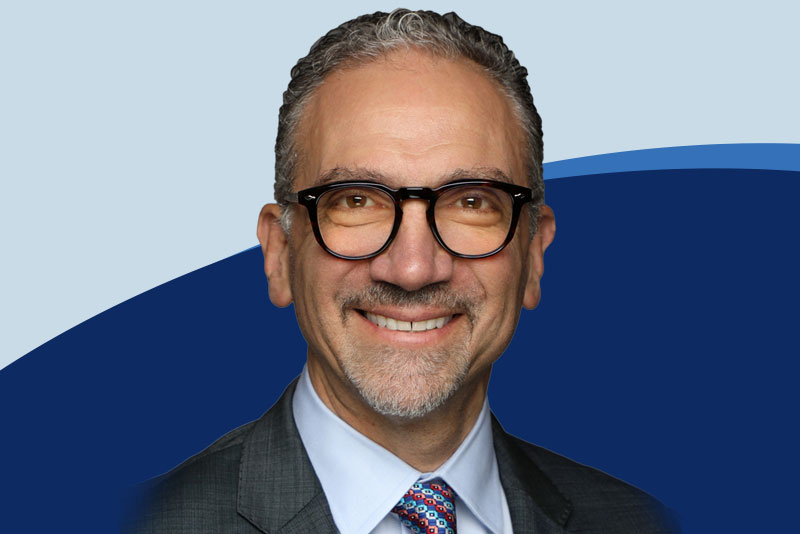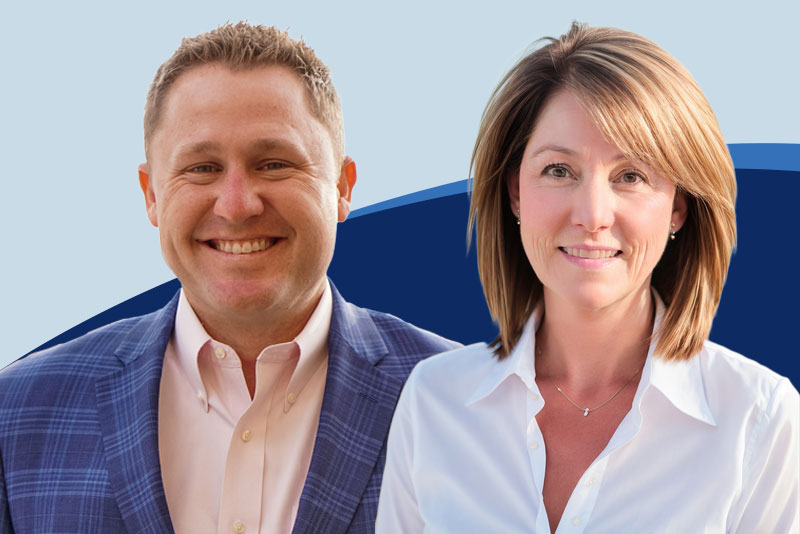Episode #347: Leading with Purpose: Transforming Your Dental Practice Beyond Insurance with Dr. Brett Kessler
Listen Now
In this insightful episode of the Less Insurance Dependence Podcast, hosts Naren Arulrajah and Gary Takacs untangle the complexities behind umbrella PPO plans, a topic that impacts many dental practices.Gary and Naren break down what umbrella plans are, how they operate, and the often-hidden challenges dentists face when trying to resign from one plan, only to discover they are part of a much larger web. This episode empowers practice owners and insurance coordinators with knowledge and strategies to avoid falling into this trap and emphasizes the importance of persistence and processes when resigning from PPO networks.
Podcast: Play in new window | Download
Subscribe: RSS
Naren Arulrajah: This is the Less Insurance Dependence podcast show with my good friend Gary Takacs and myself, Naren Arulrajah.
Gary Takacs: We appreciate your listenership, your time, and most of all, we appreciate your intention to reduce insurance dependence in your practice. Our goal is to provide information that will help you successfully reduce insurance dependence and convert your practice into a thriving and profitable dental practice that provides you with personal, professional, and financial satisfaction.
Naren Arulrajah: Hello everyone. Welcome to the Less Insurance Dependence podcast, the official podcast of the Reducing Insurance Dependence Academy, www.rid.academy. Membership to the academy is a gift from Gary and me in appreciation for your listenership. Visit rid.academy and do not forget to register. By registering, you will have access to all of our resources and a free pass to all of our events, including our annual summit.
I am Naren, your co-host. Today’s podcast is titled The Tangled Web of Umbrella Plans, The Tangled Web of Umbrella Plans. Before I jump into today’s episode, I do have an announcement to make. We have an event coming up on the 8th of July—two hours of CE from 8 to 10:00 PM Eastern Time—and the link is thrivingdentist.com/events. So definitely, you know, don’t miss to sign up. Go to thrivingdentist.com/events and sign up for this awesome two-hour mini summit where we’re gonna have experts—Gary, myself—and talk about this idea of how do you deliver next-level patient care, and how do you create experiences that make people want to come back.
So it’s gonna be a lot of value and obviously, two hours of CE. Any comments, Gary?
Gary Takacs: Yeah, I’m excited about that workshop that we’re putting on, because really exceptional patient care is one of the things you have to master if you’re gonna successfully go out of network. Let’s tie it directly in to the topic of this podcast—less insurance dependence. If you have an average patient experience, you might as well stay in network. You know, if it’s average, if it’s just what everybody expects, there isn’t anything exceptional about it, then you’re on weak ground to go out of network.
But on the other hand, if you can really master delivering next-level patient care and really tilt the scales more towards a relationship-driven practice as opposed to a transaction-driven practice—if it’s an average patient experience, then it’s a transaction. But if it’s exceptional, that really is a whole other level of experience for the patient, which will bode well when you go out of network, because they aren’t gonna want to go somewhere else where they’re not gonna get that.
So we’ve assembled a really great panel. Naren and I will both do a short, independently short, opening keynote. And then we’ve got some panelists that are experts in the area of next-level patient care. You’re gonna have lots of takeaways—two hours. You get two hours of CE. There is no tuition. We’re providing that as a courtesy to you and as thanks and appreciation for your listenership.
July 8th, 8:00 PM Eastern Time, two hours. You get two hours of CE. Come join us.
Naren Arulrajah: Thank you so much, Gary. I agree. I think it’s gonna be awesome, and our listeners—our attendees—will get a lot of benefits. So, next-level patient care.
The topic today is The Tangled Web of Umbrella Plans. So let’s dive into this. I know I have had conversations with clients—I know Gary and I, I mean, many of you know that Gary and I have mutual clients—so we end up talking about the same clients and helping them solve problems. And one of the things I’ve noticed some of the people struggle with as they go out of insurance is, you know, they think they’re going out of one plan, but they end up having to go out of like seven plans. And there’s all these complications that come with it.
So somebody might think, "Oh, I’m only on three plans or five plans," but really they are with 15 plans because of this concept called umbrella plans. So can you start by defining what an umbrella plan is and why it is kind of a surprise for dentists as they start going through this journey?
Gary Takacs: This is a—um—this is a development. Umbrella plans have been around for a while. However, the number of umbrella plans is much larger today than it was even in the recent past. And so, basically, when we look at PPO plans, there are two simple categories of PPO plans.
One category would be a silo plan. A silo plan—an example of a silo plan—would be Delta Dental. It’s just Delta; there are no others. We know within Delta there is Premier and PPO, but that’s all under the, you know, it’s all under the banner of Delta Dental. There are other silo plans.
However, more and more insurance companies are moving their plans under an umbrella. And one of the reasons—an umbrella is simply—think about an umbrella over your head. So now this might be an umbrella connection network. It might involve 14, 15, 16 different plans. You think it’s a plan by itself, but in fact, it is tied into all the other 15 or 16 plans under the umbrella of Connection Dental.
Naren Arulrajah: So, I mean, maybe you can explain why this is happening. I think, well…
Gary Takacs: What’s happening is that the PPO plans are outsourcing the administration. So they are leasing the administration from other companies that can do it at less expense. It’s all about money. Everything related to insurance companies is about money, right? Just follow the money. Why are they doing this? Because if they had to build a staff to handle all the processing and claims themselves, compared to outsourcing it to a network that can do it cheaper, what are they gonna do? They’re gonna outsource it to the network.
Naren Arulrajah: So let me understand. So what you’re saying is, they outsource this. So, in other words, for me, the insurance company, I can now say, "Hey, Mr. Customer, Mr. Employer,"—because I don’t care about the employees, I care about the employer—"now I have three more million people on my plans." But it’s not really my plans, it’s plans that umbrella plans that I signed up with, right? And I don’t have the headache of managing these 3 million people and their claims.
Gary Takacs: And the real pitch to the employer is, "And we can offer you lower premiums." So they can lower the premium to the employer because now, instead of, you know, spending—I’ll just make up numbers—instead of spending $50 million a year on processing claims and all of the associated work with being an insurance business, they can outsource it to another company and spend $35 million.
Where do you think the other $15 million goes? It goes right to the pockets of the fat cats, right? Of the insurance company. So that’s why it exists.
But the difficulty—and why we want to do this—so this is the first time we’ve covered the topic of umbrella plans on the Less Insurance Dependence podcast. But I thought it was important to cover it because a number of times we’ve encountered this now, and you are likely to encounter this if you’re not aware.
Gary Takacs: Let’s say you resign from Aetna, which is often part of an umbrella, and you think you’ve successfully resigned from Aetna. But what Aetna did was just shift you over to the umbrella. And as they shift you over to the umbrella under Connection Network, there could be two possibilities in terms of what happens with your fee schedule—actually, I guess it could be three possibilities.
One possibility is your fee schedule stays the same exactly as it was under Aetna. Another possibility is that the network can give a slightly better fee schedule to you, and it might look favorable to switch over to the umbrella because it’s a little bit better. But when I say better, I’m really talking about microscopically better—maybe throwing you an extra dollar for a hygiene appointment. I’m sorry, but that’s not going to solve the discount problem, right?
So, it could be a little bit better, and that would be the pitch for staying in the umbrella: "Well, the fee schedule is better over here." But if you don’t look into it, you might be seduced by that statement. "Oh, the fee schedule’s better." They’re technically correct if they’re throwing you a dollar for a hygiene appointment—yes, the fee schedule is better over here—but not enough to make a difference, right?
Naren Arulrajah: Let me ask you this.
Gary Takacs: Well, the third possibility there is that the fee schedule goes down. And if the fee schedule goes down, you’re worse off in the network. But the tricky part is, to get out of Aetna, you’ve now got to resign from the umbrella. And you have to resign from all of the plans that are under the umbrella.
So what became—I won’t ever call resigning a simple task—but what was an easier task in the past now becomes monumentally more complicated. You’ve got to resign from however many plans are in the umbrella. Otherwise, you’re just roped into it. And it’s an intentional plan on the part of the PPOs to make it so difficult that your insurance coordinator—or doctor, if you’re involved in it—at some point, you just throw your hands up and give up. It’s like, "Oh, this is so difficult to resign."
Gary Takacs: I thought I was out of it. Now I’m not out of it. Now I have to send letters out. Now I have to do this and this and this. And it’s fatigue. It’s an intentional fatigue dynamic to get you fatigued and give up. And that’s what happens with so many insurance coordinators.
I have an insurance coordinator we’re working with right now in our coaching—she’s amazing. If I could take her and clone her, I’d put her in every one of your offices. But she’s reached a point of pulling her hair out. She said, "Gary, this is so difficult. They keep throwing hurdles in front of me." And when I explained to her, "It’s intentional. The insurance company is counting on you to give up," she said, "I’m not—I don’t give up." But, you know, her emotions were around…
Gary Takacs: It’s so frustrating. And that’s exactly what the insurance companies are banking on—that you’ll just give up and stay in network. But don’t do that. And that’s why we’re doing this episode. Don’t do that. When it’s an umbrella plan, you just have to break it down into pieces.
You know, think of creating an SOP—we have that for our clients. That’s something we have in Thriving Dentist, an SOP—Standard Operating Procedure. Here’s what we do step by step when we’re dealing with umbrella plans. Here’s what we do. We don’t skip a step. We cover everything.
It’s literally like—imagine, Naren, if you’re a chef and you have a recipe that requires 20 ingredients. If you skip one or two of those ingredients, the meal’s not going to come out the same. Same thing here.
Gary Takacs: Imagine now you have an SOP that involves, you know, 12 to 15 steps. We just systematically go through those steps and—easy peasy—you’re out. And we repeat it through all the different plans. So it’s absolutely manageable.
But as a practice owner, this stuff catches you off guard. It catches you unaware, and it catches your insurance coordinator unaware. I’ve had a number of cases where the insurance coordinator has gone to the doctor and said, “Congratulations, doc, today we’re out of Aetna.” And then we look at the EOBs next week—and they aren’t fee-for-service EOBs. They’re EOBs in the other network. There are explanations of benefits in the other network. That’s when we discover: we’re still in network.
And then you reach out to Aetna, and they say, “Oh, that’s not us. That’s Connection. You have to deal with them.”
Gary Takacs: So it is—it is—notice the title of this episode: The Tangled Web of Umbrella PPO Plans. It is a tangled web. My crystal ball says it’s only going to get more complicated moving forward. Because again, if a silo plan can save money and make more money for their executive team by outsourcing the administration of their plan, they’re going to do it. And you’re only going to see more of this.
Also, if it results in fewer dentists resigning, that’s a side benefit to them. That’s another benefit to them—because fewer dentists will go through with it. Most will just throw their hands up and say, “This is beyond my capability of doing this. I’m out. We’ll just stay in network.”
Gary Takacs: Yeah—which is the wrong answer. I’ll be clear: that’s the wrong answer. You’re letting them win. Just go step by step.
And we’ve got it. If you’d like help with that, schedule a coaching strategy meeting with me. Go to thrivingdentist.com/csm , and we’d be happy to provide more details about how to do this and share with you how we make that easy. We get to the finish line. We’ve got a team on this and provide the support that you need—because it’s likely that you don’t have the in-office support to be able to do this.
Naren Arulrajah: Absolutely, Gary. Thank you.
Gary Takacs: So, I know you’ve encountered this, Naren.
Naren Arulrajah: Yeah, I have encountered this quite a few times. And I think it’s kind of like the on-ramp is easy, but the off-ramp is really, really difficult. And, like you said, it’s intentional. And it has nothing to do with you or the patients—not the doctor nor the patients. It’s just all about, like, you know, “What’s the best way to make the most money with the least amount of work?”
Gary Takacs: I love your analogy. Yeah, the off-ramp is barricaded.
Naren Arulrajah: Barricaded.
Gary Takacs: Barricaded! You know, they put a barricade up. Now, you could work your way around the barricade, but in most cases, your insurance coordinator doesn’t know how to do that.
Naren Arulrajah: And they make it complicated, right? The barricade is the complexity. And you just throw up your hands and give up, because it’s not like, “Here are three things you do and it’ll be done in, you know, whatever timeframe.” It’s just… no.
Gary Takacs: There still are silo plans beyond Delta. And I love it when we have silo plans because it’s a much more straightforward resignation process.
Naren Arulrajah: Let me ask you a different question. So, if somebody’s considering—first of all, do doctors know they’re signing up into an umbrella plan? Or do the umbrella plans do a good job of kind of not sharing that information?
Gary Takacs: They make it a mystery. They make it a mystery. In fact, many of our clients have said, “Gary, what happened here? I thought we resigned from…” In the past—before we started working together—they said, “I thought I resigned last year from, say, Aetna.”
And then, often it’s like: project done, out of sight, out of mind. They go back to the mouth—doing dentistry. And then it takes them looking at the EOBs to realize, “Wait a minute. We resigned, and I’m still not getting my full fee. I’m either getting a dollar more on some procedures—or it’s less. What happened?”
And of course, it goes to the insurance coordinator: “What’s going on? I thought we resigned. I thought we were out.” “I don’t know.”
Gary Takacs: “We’ll contact them.” And then, here’s what will happen. Your insurance coordinator will contact the umbrella plan—the Connection Network. And finally, after being on hold for a long time, they’ll get a hold of someone and start asking questions: “What happened?”
“Well, your original plan—Aetna—is part of our umbrella, so now you’re part of the umbrella.”
“Well, we don’t want to be part of the umbrella. We want to resign.”
“Well, then you have to successfully resign not only from us, but from the other 12 plans that are part of the umbrella.”
And that’s the answer they get. And they’re not going to help. The rep on the phone—the insurance company rep—is not going to help you resign from the umbrella because they’re vested in you staying in network.
Gary Takacs: Right. So, it really is—you know, I love the analogy of “the on-ramp is easy, the off-ramp is hard.” And what happens is this fatigue factor kicks in. It’s like, “I’ve got other things I’ve got to pay attention to. I’ll just stay in network.”
Which is exactly what they want you to do. Don’t do that. Avoid that.
But I’m really pleased to provide this episode—at least put it on the radar screen for you—so that you understand the magnitude of resigning from umbrella plans.
If I think back, Naren, to the last two years in our coaching work, I’m thinking as I speak—I don’t think I’ve encountered any of our practices that have resigned that have not had at least one umbrella plan as part of the resignation process in the last two years.
Gary Takacs: I don’t think we’ve had one that has not. Well, I take that back—there was one client where the only plan that practice was in was Delta, and that would’ve not had an umbrella.
Naren Arulrajah: I see.
Gary Takacs: That’s only one. All the others have involved umbrellas. So, it’s just something else you have to master. It’s not insurmountable at all—you just have to know the steps.
Well, Naren, as we wrap up, I want to go back to the top of the episode—come join us on July 8th, Delivering Next-Level Patient Care. And that makes sense whether you’re staying in network or going out of network, because you want to deliver the exceptional patient care that matches your exceptional dentistry.
Come join us July 8th, it’s 8:00 PM Eastern Time—so, 8:00 PM Eastern, 7:00 PM Central, 6:00 PM Mountain, 5:00 PM Pacific Time. Go to thrivingdentist.com/events.
Thank you all for the privilege of your time. Naren and I look forward to connecting with you on the next Less Insurance Dependence podcast.
If your patient experience is average, you might as well stay in-network. But if it’s exceptional, that’s your superpower when you go out-of-network. That’s how you thrive.
Gary Takacs
It’s not about the patients. It’s not about the doctors. It’s about making more money with less work and that’s what makes umbrella plans so deceptive.
Naren Arulrajah
 One of Gary's most significant achievements as a dental practice management coach is transforming his own practice, LifeSmiles, from one that was infected with PPO plans, no effective marketing strategy, and an overhead of 80% to a very successful dental practice that is currently one of the top-performing practices in the US.
One of Gary's most significant achievements as a dental practice management coach is transforming his own practice, LifeSmiles, from one that was infected with PPO plans, no effective marketing strategy, and an overhead of 80% to a very successful dental practice that is currently one of the top-performing practices in the US.
 As CEO of Ekwa Marketing, Naren has over a decade of experience working with dental practices and helping them attract the ideal type of patients to their practices. It is his goal to help dentists do more of the type of dentistry they love with the help and support of effective digital marketing.
As CEO of Ekwa Marketing, Naren has over a decade of experience working with dental practices and helping them attract the ideal type of patients to their practices. It is his goal to help dentists do more of the type of dentistry they love with the help and support of effective digital marketing.



